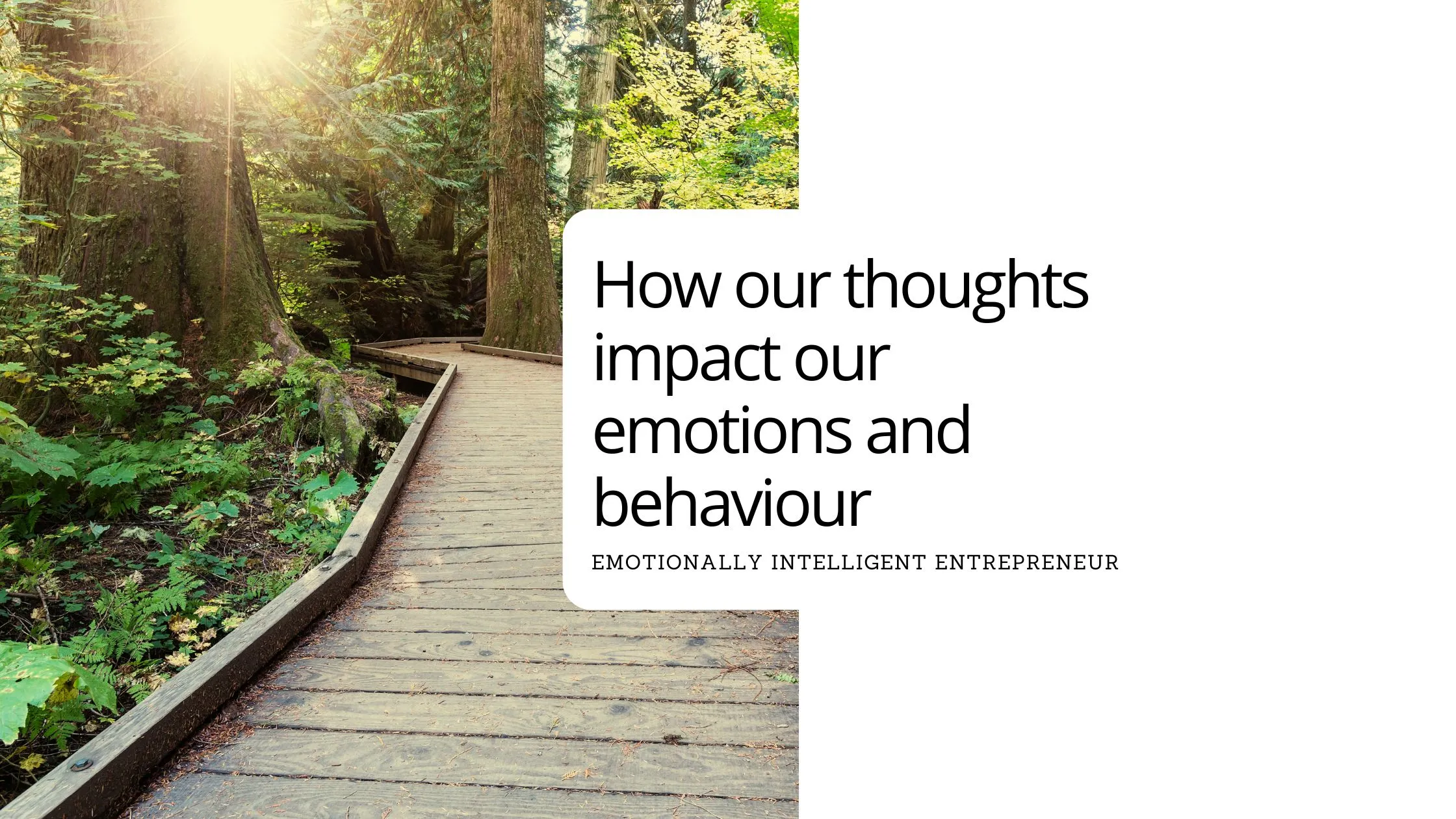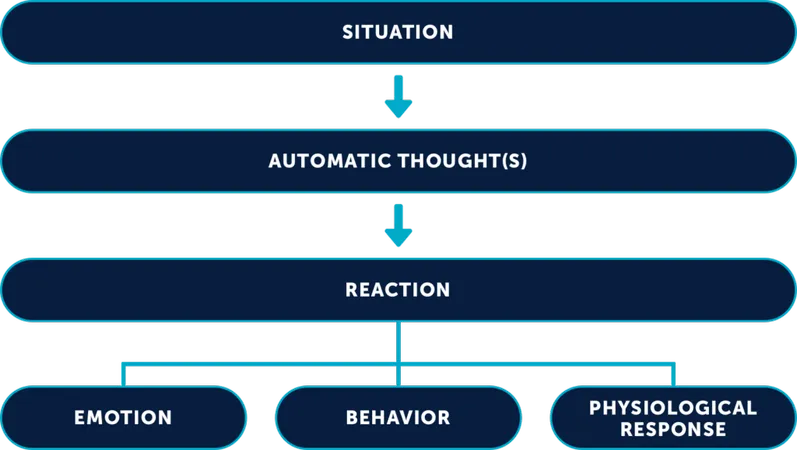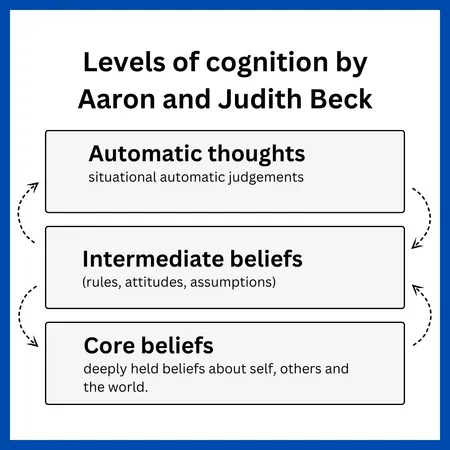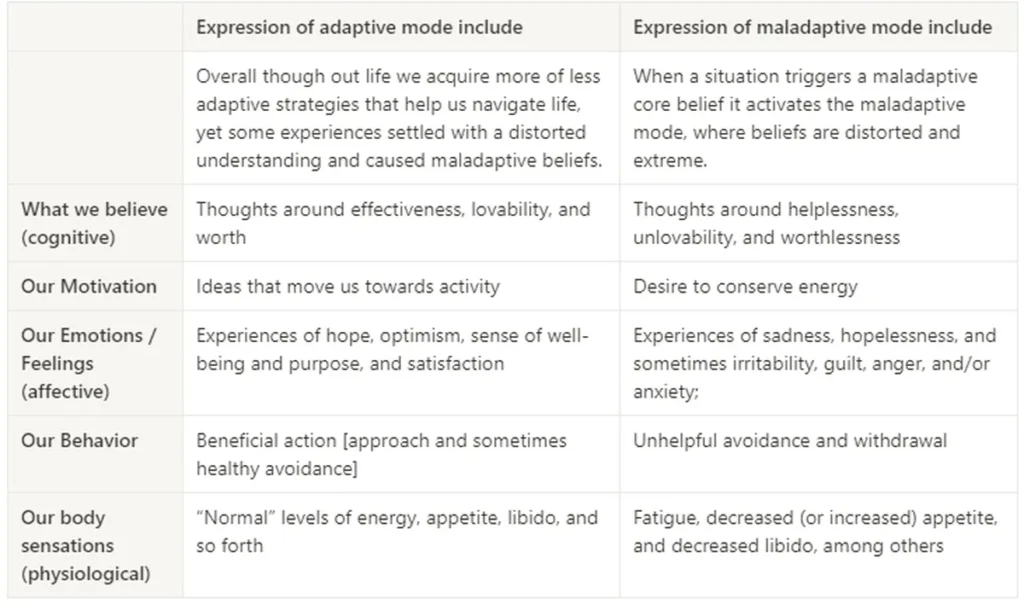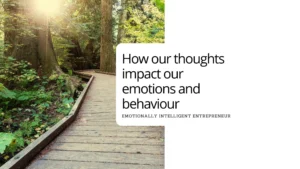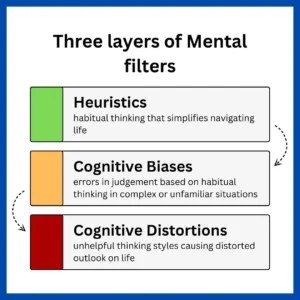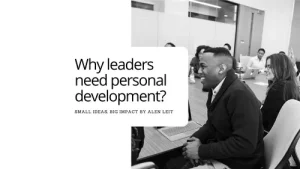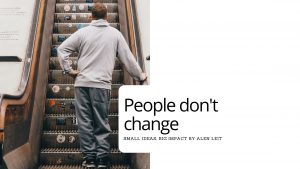Having learned about mental filters, it’s time to learn about the model of how our mental filters play their role in day to day life (how our cognition works)
One of the scientific methods of working with mental health and wellbeing is the cognitive behavioral approach, which effectiveness is proven by research and clinical trials. With ongoing research and adaptation of latest findings to improve the methods.
Table of Contents
Cognitive model in the cognitive behavioral approach
In Cognitive behavioral approach, there is a framework called the “cognitive model” developed by Aaron Beck (the founder of Cognitive behavioral approach) in the 60s and then advanced by Judith Beck.
It serves as the fundamental principal the cognitive behavioral approach is based on. It proposes that peoples emotions and behaviors are influenced by their perception of the situation.
In the framework, every situation we face, we have automatic thoughts that are involuntarily activated. This is where the mental filters I wrote about earlier reside.
These automatic thoughts trigger a sequence of events in our body.
- Emotional response relevant to our automatic understanding.
- Physiological response (body sensations) that accompany our emotions.
- Behavioral response that we personally believe would “benefit us” in this situation.
In many cases this sequence then enters a loop, where it starts to bounce from one thing to another. It is explored in the extended cognitive model by Judith Beck.
Automatic thoughts
Now when we explore the automatic thoughts, as we explored in mental filters, they can be helpful or maladaptive, and cognitive distortions are unhelpful thinking styles.
When we look at situations we want to change in life, there are maladaptive automatic thoughts (mental filters) at play.
J.Beck characterized them as actual words or images that go through our mind in a given situation and lead to distress or unhelpful behavior.
Cognitive distortions represent maladaptive beliefs, which in the “levels of cognition model” are represented by:
Intermediate beliefs
Core beliefs
Core beliefs or schemas, that are deeply held beliefs about self, others and the world. Core beliefs are generally learned early in life and are influenced by childhood experiences.
Adaptive core beliefs are realistic and functional and not at an extreme, where as Dysfunctional core beliefs are rigid and absolute, maintained through maladaptive information processing.
Important note, even though these belief systems were formed from childhood they can be transformed.
Adaptive vs Maladaptive systems
Meaning that if we are in a maladaptive mode, we are not broken, like wise if we are in adaptive state, doesn’t mean that we don’t have maladaptive belief systems.
When we are in a maladaptive mode, we can use tools and techniques to correct it towards a more adaptive belief systems.
When everything is going good, it is a great time to nurture the adaptive strategies further.
We all can feel sad, anxious, desire to withdraw and conserve energy, especially as entrepreneurs being constantly exposed to the spotlight.
Yet, when you are aware that you are experiencing symptoms mentioned above in the maladaptive mode over a prolonged period of time, it’s a great sign, that you managed to become aware of your mental health challenges, which is the first step to overcome it.
If you find yourself in any of these states for some time, it is worth consulting a mental health professional to get the support you need to active the adaptive mode and improve your experience of life.
Executive Summary
- Subject and Context: The article examines the cognitive behavioral approach to mental health, focusing on the cognitive model developed by Aaron Beck and refined by Judith Beck. This model is foundational to understanding how perceptions of situations influence emotions and behaviors.
- Key Concepts: Central to the cognitive behavioral approach is the idea of automatic thoughts that arise involuntarily in response to situations. These thoughts trigger emotional, physiological, and behavioral responses, creating a feedback loop that influences ongoing mental states.
- Cognitive Distortions: The article details how maladaptive automatic thoughts, driven by cognitive distortions and deep-seated core beliefs, can lead to unhelpful behaviors and emotional distress. These core beliefs about self, others, and the world are formed early in life but are modifiable.
- Practical Implications: The cognitive model demonstrates the importance of recognizing and modifying maladaptive thoughts and beliefs as a strategy for improving mental health and adaptive functioning.
- Conclusion: Our way of thinking and perceiving heavily impacts our relationships and outcomes in life. One of the sure ways of improving the quality of life is evaluating your thinking styles and perspectives to identify where to invest your time and resources for the best ROI.
